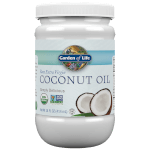If you thought you were destined for a life filled with weight problems, low energy and ill health, think again! Nearly 65 percent of our population is overweight with 27 percent considered obese; virtually every disease is on the rise. There is no doubt that our current health crisis is directly related to our poor dietary and lifestyle choices; the incidents of cardiovascular disease, cancer, and diabetes have sky-rocketed as consumption of modern foods has increased, our environment has become increasingly polluted, and physical activity levels have decreased.There is good news, however. Today’s greatest weapon in the battle for good health is this: Get back to the historically correct and scientifically proven health program called “The Maker’s Diet”. Written by the founder of Garden of Life, Jordan Rubin, The Makers Diet shares humanity’s oldest, most successful health plan in a 40 day, easy-to-follow diet and lifestyle plan with over 100 delicious recipes. Going far beyond any other diet plan, The Maker’s Diet focuses not only on the type and amount of foods one should eat, but also teaches the reader the true importance of food quality and proper preparation.
Other health topics in The Maker’s Diet include the ultimate 40-day plan to healthy weight loss, a powerful detoxification program, an exercise plan that works for everyone, a system of advanced hygiene helps to reduce stress on the immune system, and a proven plan to help ensure emotional, mental, and spiritual health. The Maker’s Diet comprehensive buyer’s guide helps take the guesswork out of healthy shopping by listing foods, products, and services from over 250 leading health organizations. Read the stories of how seven ordinary people took their health into their own hands and fought back to regain a life they never dreamed they would have. There is even a chapter in The Makers Diet that lists 25 things many of us do every day in our quest for good health that can actually make us sick!
| Garden of Life |
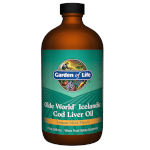 |
| Cod Liver Oil Icelandic 8 oz Liquid |
| $ |
| Garden of Life |
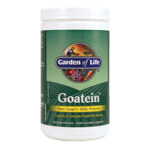 |
| Goatein 440 Grams Powder |
| $ |
| Garden of Life |
 |
| MyKind Organics Mens Multi 120 Tablets |
| $ |
| Garden of Life |
 |
| MyKind Organics Womens Multi 120 Tablets |
| $ |
| Garden of Life |
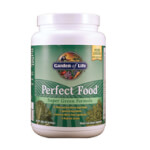 |
| Perfect Food 600 Grams Powder |
| $ |
| Garden of Life |
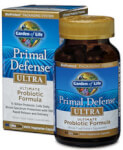 |
| Primal Defense Ultra 90 Capsules |
| $ |
| Books |
 |
| The Makers Diet |
| $16.99 |
| Garden of Life |
 |
| Vitamin Code Family 120 Capsules |
| $ |
The following is an excerpt from Jordan Rubin’s new book, Maker’s Diet revolution:
In the following pages of The Maker’s Diet Revolution, I’ll expand on three principles, or pillars, of biblical health. They are:
- 1. Eat what God created for food.
- 2. Don’t alter God’s design.
- 3. Don’t let any food or drink become your idol.
.The inspiration for these three principles comes from Rex Russell, M.D., author of What the Bible Says About Healthy Living. Dr. Russell was a mentor and a good friend of mine right up until his death in 2009. The truth is that the Bible has a definition of food and a definition of filth. This is clearly laid out in Leviticus 11 and Deuteronomy 14 as it pertains to animal foods. In addition, there are many items in our modern diet that are made exclusively of laboratory-created chemicals. These are clearly not partof the Creator’s eating plan. God did, however, create—for us to enjoy— wonderful foods that are teeming with nutrients, beneficial compounds, and best of all, great taste.
Not altering God’s design has to do with how food is grown, raised, pro- cessed, and prepared. For plant foods, I’m referring to what we do before seeds are planted in the ground, while the food is growing, and after the food is harvested.
Let’s talk about how food starts in the fields. The rise of Big Agriculture in the last century means that fewer and fewer farmers are growing more and more food on larger and larger plots of land. To increase crop yields and to get the most of their acreage, large-scale farming operations plant seeds containing genetically modified organisms (GMOs) that are resistant to insect infestation.
If you’ve heard of genetically modified foods but are not sure what they are, you should know that these crops have been genetically engineered using the latest molecular biological techniques. In other words, these seeds were modified in the laboratory by taking genes from one organism and inserting them into another to make them grow higher, larger, denser, and more resis- tant to pests.
The problem is that we’re using molecular engineering to force genetic information across the protective species barrier in an unnatural way. While the idea of creating pest-resistant plant species is laudable, the problem is that scientists have successfully added genes to foods that weren’t originally part of that food’s creation, which changes the DNA of the crop.
As of this date, these laboratory-created mutations have not been subjected to any sort of rigorous testing on humans, but genetically modified foods have been linked to toxic and allergic reactions causing sickness and sterility in livestock, which is why they are banned as food ingredients in Europe and other nations. Even though we don’t have scientific studies outlining just how detrimental the short-term or long-term effects will be, we do know that GMO crops demand higher levels of toxic herbicides and pesticides, which go straight into the food you eat—and straight into your stomach and ultimately your bloodstream.
Bottom line: GMO foods offer no benefits, only health risks. But if you’re like most people, you’re probably unknowingly exposing yourself to these excessive toxins sneaked into your food. Stop being a victim today. Another form of altering God’s design is hybridization, which is taking two species from the same plant family and grafting them together. In the animal world, we would call this selective breeding, but in the plant world, you’re basically creating a new species.
A prime example of hybridization would be seedless watermelons, which were created in the laboratory by a Japanese scientist who figured out that pollinating plants with a normal complement of chromosomes with a plant genetically modified with double the number of chromosomes would produce a fruit that lacked seeds. What’s more is that watermelon patches and every other conventional crop are subjected to pesticides and herbicides to battle insects and pests that damage the crops. Crop-duster planes routinely douse crops with chemicals that are toxic, resulting in a less healthy food supply. In addition, synthetic fertilizers used to replenish soil fertility may stimulate rapid plant growth, but they bring along unintended consequences. These fertilizers are made up of nitrogen salts, which return little, if any, vital minerals to the soil and actually cause micronutrient imbalances. Thus, the nutritive value of foods grown in our soils has declined significantly in the last hundred years.
The use of pesticides and herbicides extends to the meat and dairy we eat as well. These days, cattle, chickens, and “farm-raised” fish are fattened on feed containing unhealthy chemicals as well as antibiotics that are added to compensate for the unsanitary and deplorable living conditions on factory farms. To add insult to injury, the majority of U.S. livestock are loaded with hormones and growth promotants that contaminate meat and dairy—a prac- tice that can lead to serious health challenges in humans, especially children and teenagers. Another example of how we alter God’s design for food is the way the “genius of man” has figured how to prepare, manufacture, cook, microwave, and market mass-produced foods in ways that are terribly unhealthy for us. Too many of the so-called foods sold in our nation’s supermarkets are not really food because they are made from synthetic and processed ingredi- ents to produce a more competitively priced product with a longer shelf life. These ingredients have been stripped clean of nutrients and pumped up with additives and preservatives. I’m talking about vegetable oils, frozen pizza, ice cream, processed cheese, potato chips, cookie dough, white bread, dinner rolls, snack foods, doughnuts, candy, salad dressing, margarine, and much more. The list is endless.
Common Makers Diet Jordan Rubin’s . Get One For All For Us!
Discover more from ReviewFitHealth.com
Subscribe to get the latest posts sent to your email.
